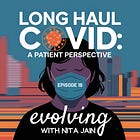July is Disability Pride Month, a time to celebrate the invaluable contributions of the disability community while acknowledging the ongoing work needed to create a more inclusive society.
Community Empowerment & Coalitions
Consider the numerous examples of momentous historical change that were the direct result of patient advocacy efforts:
Thalidomide crisis response (1960s): Affected families fought for recognition, compensation, and stricter drug safety regulations globally.
Breast cancer movement (1970s-present): Breaking the silence around breast cancer led to the creation of Susan G. Komen Foundation, increased research funding, and better screening programs.
Disability rights movement (1970s-present): Activists fought for the Americans with Disabilities Act (1990), revolutionizing accessibility and rights for disabled individuals.
AIDS activism (1980s-90s): ACT UP's bold protests accelerated drug approvals and boosted research funding, transforming HIV from a death sentence to a manageable condition.
Rare disease legislation (1983): The Orphan Drug Act, driven by the National Organization for Rare Disorders (NORD), incentivized research for overlooked conditions.
Henrietta Lacks' legacy (2010s): Her family's advocacy led to recognition of her contribution to medical research and reforms in genetic privacy.
Mental health reform (ongoing): Patient-led initiatives have been crucial in destigmatizing mental illness and promoting community-based care.
To my fellow patients, caregivers, and allies: Our experiences are valid, our needs matter, and our voices deserve to be amplified.
We stand on the shoulders of giants whose advocacy repeatedly changed the course of history. When patients unite, real change happens.
Still, there is work to be done towards more inclusive clinical trials, stronger social safety nets, more multidisciplinary care, and healthcare systems that don't leave anyone behind.
Spotlight: The Spooniverse
The Spooniverse adopts a patient-centered approach and recognizes that those living with chronic conditions are the true experts on their own lived experiences.
The platform's name itself references spoon theory, a framework created by Christine Miserandino to explain the limited energy resources that people with chronic illnesses must carefully manage each day.
The Spooniverse serves as a comprehensive hub where patients can:
Find specialized healthcare providers who understand their specific conditions
Access evidence-based treatment resources tailored to their needs
Connect with peer support networks and advocacy groups
Discover assistive technologies and adaptive equipment
Navigate insurance and financial assistance programs
Share experiences and learn from others facing similar challenges
Explore here: https://www.thespooniverse.org/
How to Support the Platform
If you’d like to get involved, here’s how:
Donate: Support the Spooniverse and other patient-centered projects that are making healthcare more accessible and connected.
Share: Spread awareness about disability rights and resources in your networks.
Engage: Volunteer with local disability organizations or advocate for accessibility improvements in your community.
The Spooniverse relies on community support to maintain and expand its comprehensive resource database, improve accessibility features, develop new tools for community connection, and ensure the platform remains freely accessible.
July might be Disability Pride Month, but advocacy seldom takes a day off.











